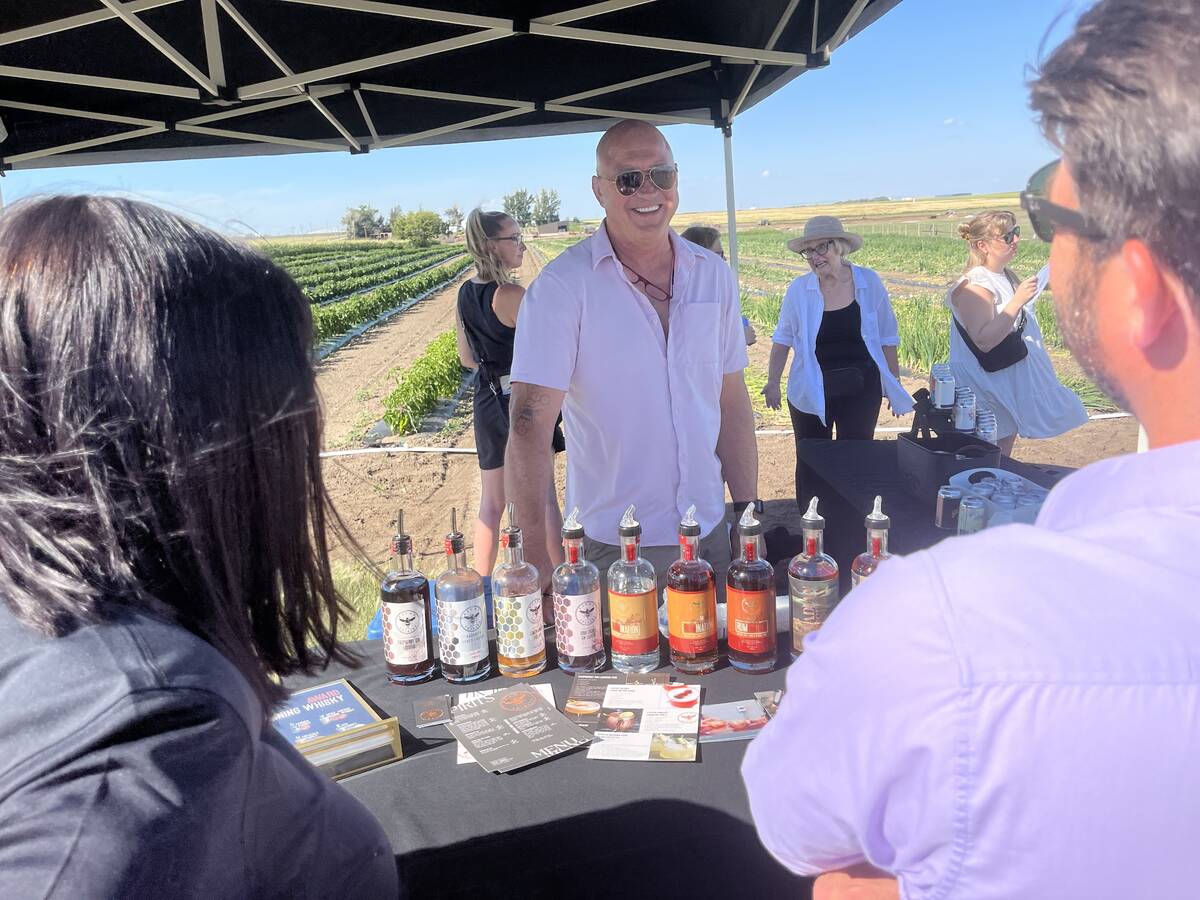Todd Hirsche says he’s not a futurist, but when his boss at the Canada West Foundation think-tank asked him to look ahead at the western Canadian economy, he complied with a 114-page book.
His crystal ball holds few favourable images of agriculture and rural
areas.
In a news conference March 8 in Saskatoon, Hirsche outlined details of the book called Coming Up Next,
released in January.
He sees challenges for Canada’s supply management agriculture in the next 20 years, especially for the Canadian Wheat Board. He said the board might lose its monopoly export power over prairie wheat and barley.
Read Also

From farmer to award-winning distiller
Pivot Spirits showcases transition from farmer to distiller with provincial award-winning results in Alberta for Lars Hirch
While many people suggest value-added agriculture is the way to succeed, Hirsche is not so sure.
“Ethanol is seen as the next big thing. There are pitfalls there. Ethanol is more an agricultural policy.”
He said the American backing of ethanol plants may not be a good role model since “governments propping up of an artificial industry (through subsidies) is not a good thing.”
Traditional dryland agriculture is a sunset industry, he said, because countries with two growing seasons such as China, Argentina and Australia “are kicking our butts.”
Hirsche said the best hopes for prairie agriculture are large livestock operations and certain niche market products.
He also said packing plants have a future based on feeding seven million people in Western Canada.
Hirsche also said that unless there is a big catastrophe that scares people out of the cities, rural areas of the West will continue to empty, except for acreages within driving distance of a city.
Computer technology might keep some people at home in a rural area with telecommuting careers.
While westerners want to do more with their oil and minerals other than shipping out the raw product, Hirsche said it will be difficult to compete for factories and manufacturing jobs. World labour rates are too low to develop a processing industry.
Instead, Hirsche said the future could be good if the West invests in research and development.
“Instead of making a chair, let’s design a chair,” he said.
To make more use of brain power, Hirsche said governments must invest in education and skills training.
“The future for Saskatchewan is in Innovation Place and the Synchrotron,” two science-based centres at the University of Saskatchewan.
Trades and technical skills are also needed and training schools and colleges won’t be regarded as the ugly sisters to universities any more.
The Canada West Foundation economist also predicted the end of mandatory retirement and the growth of multiple trade partners rather than relying on the United States to buy Canadian goods and services.
Hirsche said governments must be more agile in developing policy to support economic trends. For example, to draw more immigrants to the West, provinces might want to target certain countries and draw sufficient numbers from them to develop ethnic enclaves where immigrants will want to come because they feel more comfortable.
Governments must also look at the environment because land and water use could harm economic growth if mishandled.














